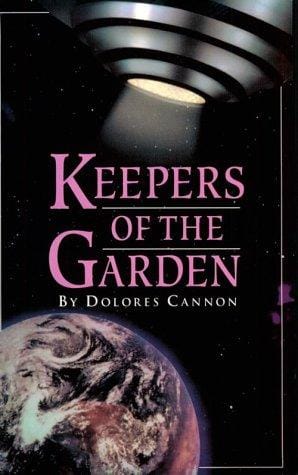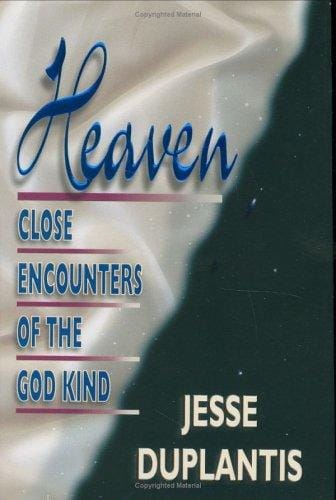Understanding Dolores Cannon’s “Keepers of the Garden”
Explore Dolores Cannon's “Keepers of the Garden,” a past-life regression classic that proposes extraterrestrial origins and volunteer souls guiding Earth.

Introduction to "Keepers of the Garden"
“Keepers of the Garden,” one of the most talked-about titles by hypnotherapist and metaphysical author Dolores Cannon, takes readers on a remarkable journey that transcends conventional views of human history. First published in 1993, the book records a series of past-life regression sessions conducted by Cannon with a young subject named Phil. During deep trance, Phil recounts lifetimes on other planets, contact with highly advanced beings and a cosmic mission to seed life on Earth. Part case study, part cosmic adventure, the narrative quickly became a cornerstone of New Age literature and remains relevant today as interest in extraterrestrial origins and multidimensional consciousness grows.
Who Was Dolores Cannon?
Dolores Cannon (1931-2014) was an American hypnotist who developed her own Quantum Healing Hypnosis Technique (QHHT). Over a career spanning five decades, she conducted thousands of regression sessions, documenting material that ranged from personal trauma to expansive cosmic histories. Her research produced a library of 19 books, each exploring themes such as reincarnation, parallel realities and the purpose of life. A pioneer in the field of regression therapy, Cannon approached each session with scientific curiosity and an open mind, a combination that gave her writings both narrative flair and investigational rigor.
The Premise of the Book
The core of “Keepers of the Garden” is Phil’s revelation that many souls on Earth are volunteers from more evolved star systems. Their mission: to help humanity navigate pivotal evolutionary leaps without violating the universal law of free will. Through vivid descriptions, Phil chronicles civilizations on planets with pink skies, crystalline architecture and telepathic communication, illustrating what humanity might one day become. These recollections serve two purposes: they make for gripping storytelling and, more importantly, they invite readers to rethink the limits of memory, identity and our place in the cosmos.
Key Themes and Takeaways
1. Extraterrestrial Lineage
One of the book’s boldest claims is that Earth’s current population includes souls whose origins lie far beyond our solar system. By tracing galactic family trees, Cannon suggests that our fascination with the stars is not merely poetic but ancestral. This perspective can foster unity by highlighting that division by race or nation is trivial compared to our shared cosmic heritage.
2. The Volunteer Soul Concept
According to Phil’s sessions, waves of volunteer souls incarnate on Earth at critical moments to anchor higher frequencies. This idea dovetails with Cannon’s later work on the “Three Waves of Volunteers,” proposing that many feel like outsiders because their last lifetimes were spent on worlds of peace and cooperation. Recognizing oneself as a volunteer can alleviate existential angst and redirect energy toward service and innovation.
3. Universal Laws and Free Will
Throughout the conversations, advanced beings emphasize that helping a developing planet must honor free will. This principle, echoed in many spiritual traditions, underlines the importance of self-responsibility. Technological or spiritual shortcuts imposed from outside would stunt genuine growth. Instead, subtle guidance—through intuition, inspiration and synchronicity—respects humanity’s right to choose.
4. Healing Through Knowledge
For Cannon, knowledge is intrinsically therapeutic. As Phil remembers his star-seeded journeys, unresolved fears and subconscious limitations dissolve. Readers witness the therapeutic power of expanded context: when life’s struggles are reframed as part of a soul’s larger mission, resentment and confusion can transform into acceptance and purpose.
Why the Book Still Matters
Nearly three decades after publication, “Keepers of the Garden” continues to resonate for several reasons. First, mainstream science is earnestly searching for exoplanets capable of supporting life, making the concept of cosmic citizenship less fanciful. Second, mental-health practitioners increasingly acknowledge the role of altered-state therapies such as hypnotherapy and psychedelic-assisted treatment. Finally, global crises—from climate change to social fragmentation—have sparked a collective yearning for perspectives that transcend the old stories of separation and scarcity.
Reading With Discernment
While Cannon’s work ignites imagination, critical reading is essential. Regression data emerge from a subjective inner landscape, filtered by both therapist and client. Skeptical minds should approach the material as a hypothesis rather than dogma, asking: Does this narrative empower me? Does it inspire compassionate action? Conversely, believers must guard against escapism that bypasses real-world responsibilities. True spiritual integration balances cosmic wonder with grounded stewardship.
Practical Applications
Even if one views the tales as metaphor, “Keepers of the Garden” offers practical lessons:
- Practice mindfulness to access intuitive guidance from your higher self.
- Foster empathy by seeing every person as a soul on a complex evolutionary path.
- Engage in sustainable living; if Earth is a garden, we are its caretakers.
- Support communities that explore consciousness responsibly—through meditation circles, regression workshops or academic study.
Conclusion
“Keepers of the Garden” challenges entrenched paradigms, weaving past-life regression, extraterrestrial ancestry and spiritual law into a visionary narrative. Whether you embrace it as literal truth or symbolic myth, the book invites a crucial question: What if humanity is part of a larger galactic family? By holding that possibility, we widen our horizon of identity and responsibility. In a time of rapid change, such expansive thinking may be the seed that blossoms into a more compassionate, innovative and unified world.



